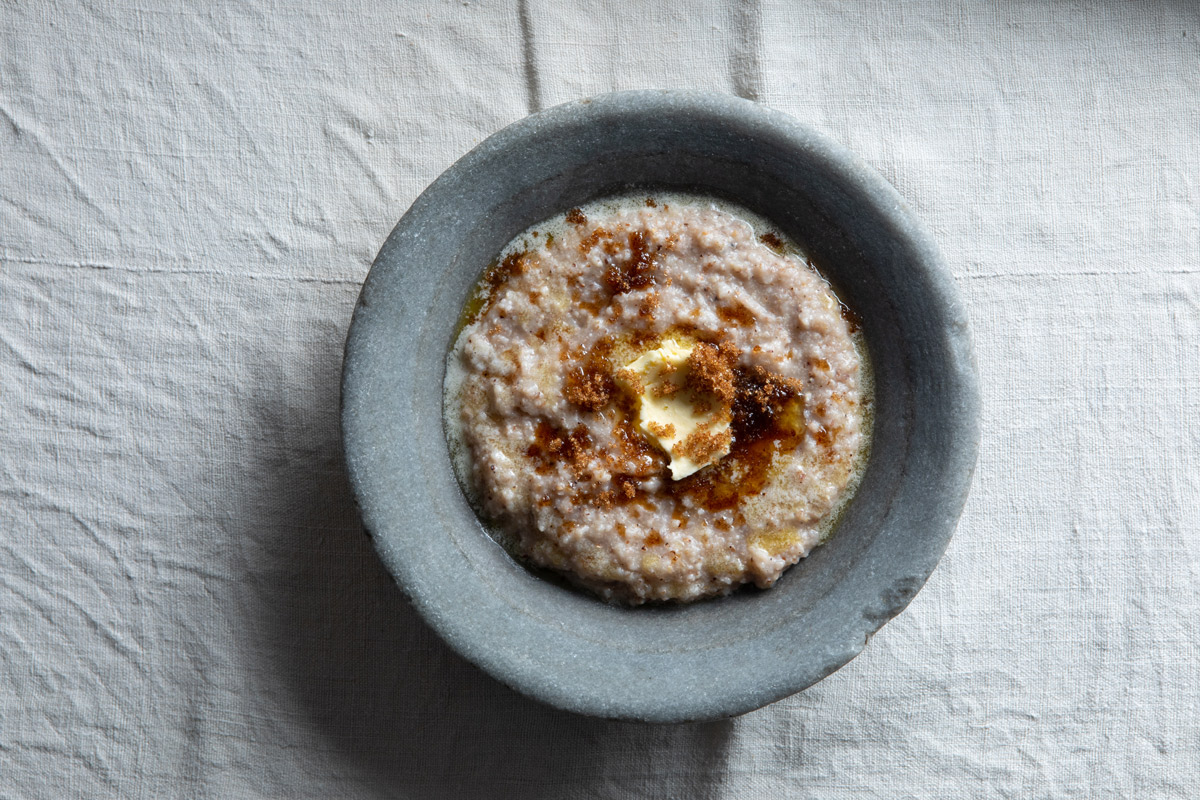From mother to son: Les Da Chef remembers his mothers ting ya mabele
Lesego Semenya – a.k.a. Les Da Chef – remembers a dish he associates with his late mom, Gloria. Ting ya mabele is the kind of recipe that’s passed down by mothers to their children.
One of the things I always do when introducing myself to people is mentioning that I was born and raised in Soweto. Growing up in South Africa’s largest and most vibrant township was a mixture of school, playing in the street or in the nearby veld, watching the weekly convoys of family gatherings and getting dressed up for church. Having visitors on Sundays was an excuse for my mom, Gloria, to cook up a storm, and this recipe is from those days.
Ting became synonymous with special occasions, but my mother would also always make it in winter. Because of its pungent aroma when it’s fermenting, she’d wake up an hour before we had to get up for school (she was a teacher and principal) and start cooking the sour porridge. We came to associate the darkness of winter mornings with ting and my mom making sure we ate it before we left. As kids we didn’t know how she made it, so when she wasn’t around sometimes my brother would try to replicate it by mixing vinegar into his breakfast porridge.

My mom was a moTswana and my dad, Enki, is a moPedi. Although sorghum (similar to millet) grows all over the country and was our natural staple before maize was brough to southern Africa, for some reason baTswana are associated with making this stiff, sour porridge. Ting ya mabele refers to the sour version of sorghum porridge (sorghum is called mabele in the seSotho group of languages). It’s made from a blend of sorghum and maize meal that’s fermented naturally for a few days before being cooked.
Some people add more maize meal for a lighter, less sour porridge, while some ferment the sorghum with the maize meal. The fermentation process is standard, but after that everyone makes the dish itself slightly differently. I prefer ting as a sour breakfast porridge with added sugar and butter, for example, but a lot of the older generation prefer it as a stiff pap. I prefer it seasoned, others consider it taboo to add salt. But inevitably, when I post about it on social media, everyone always gets excited.


